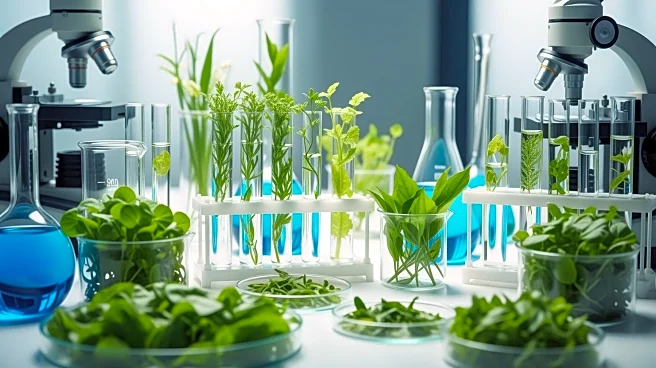What's Happening?
The agricultural industry is facing challenges in developing bioherbicides, despite the increasing resistance of weeds to traditional herbicides. Industry experts, including Dr. Virginia Corless of Moa
Technology, highlight the technical and cost-related hurdles in creating bioherbicides that can compete with low-cost chemical herbicides like glyphosate. The rise in herbicide-resistant weeds presents a potential market for bioherbicides, but the sector lags behind other agricultural biologicals like biopesticides. Innovations such as biological amplifiers, which enhance the efficacy of existing herbicides, are being explored to address these challenges.
Why It's Important?
The development of effective bioherbicides is crucial for sustainable agriculture, especially as herbicide resistance becomes more prevalent. Bioherbicides offer a more environmentally friendly alternative to chemical herbicides, potentially reducing the ecological impact of farming. However, the high cost and technical challenges of developing these products pose significant barriers. Successful innovation in this area could lead to more sustainable weed management practices, benefiting farmers and the environment. The industry's ability to overcome these challenges will be critical in shaping the future of agricultural practices.
What's Next?
The industry is likely to see continued research and development efforts focused on overcoming the cost and efficacy challenges of bioherbicides. Companies like Moa Technology are exploring partnerships to develop new products, such as biological amplifiers, which could enhance the effectiveness of existing herbicides. The success of these efforts could lead to broader adoption of bioherbicides, particularly in regions where herbicide resistance is a significant issue. Additionally, regulatory changes and consumer demand for sustainable practices may drive further innovation in this sector.











